
Code: 19415752
Understanding Educational Psychology
by WOLFF-MICHAEL ROTH
This book takes up the agenda of the late (but unknown) L. S. Vygotsky, who had turned to the philosopher Spinoza to develop a holistic approach to psychology, an approach that no longer dichotomized the body and mind, intellect a ... more
- Language:
 English
English - Binding: Paperback
- Number of pages: 328
Publisher: Springer International Publishing AG, 2018
- More about this

131.22 €
RRP: 134.93 €
You save 3.71 €

In stock at our supplier
Shipping in 5 - 7 days
You might also like
-
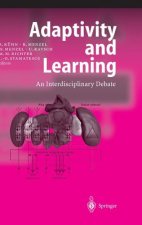
Adaptivity and Learning
116.58 € -
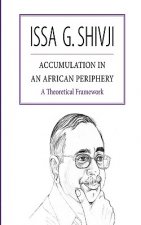
Accumulation in an African Periphery
37.50 € -2 % -

German Army Shoulder Boards and Straps 1933-1945
66.87 € -25 % -
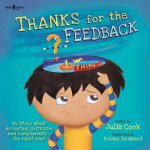
Thanks for the Feedback, I Think?
10.05 € -24 % -

Fifteenth (Scottish) Division 1914-1919
38.11 € -
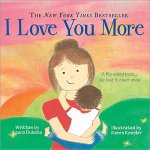
I Love You More Padded Board Book
8.43 € -18 % -

Insignia of the Waffen-SS: Cuff Titles, Collar Tabs, Shoulder Boards and Badges
17.78 € -16 %
Give this book as a present today
- Order book and choose Gift Order.
- We will send you book gift voucher at once. You can give it out to anyone.
- Book will be send to donee, nothing more to care about.
More about Understanding Educational Psychology
You get 327 loyalty points
 Book synopsis
Book synopsis
This book takes up the agenda of the late (but unknown) L. S. Vygotsky, who had turned to the philosopher Spinoza to develop a holistic approach to psychology, an approach that no longer dichotomized the body and mind, intellect and affect, or the individual and the social. In this approach, there is only one substance, which manifests itself in different ways in the thinking body, including as biology and culture. The manifestation as culture is premised on the existence of the social. In much of current educational psychology, there are unresolved contradictions that have their origin in the opposition between body and mind, individual and collective, and structure and process-including the different nature of intellect and affect or the difference between knowledge and its application. Many of the same contradictions are repeated in constructivist approaches, which do not overcome dichotomies but rather acerbate them by individualizing and intellectualizing our knowledgeable participation in recognizably exhibiting and producing the everyday cultural world. Interestingly enough, L. S. Vygotsky, who is often used as a referent for making arguments about inter- and intrasubjective "mental" "constructions," developed, towards the end of his life, a Spinozist approach according to which there is only one substance. This one substance manifests itself in two radically different ways: body (material, biology) and mind (society, culture). But there are not two substances that are combined into a unit; there is only one substance. Once such an approach is adopted, the classical question of cognitive scientists about how symbols are grounded in the world comes to be recognized as an artefact of the theory. Drawing on empirical materials from different learning settings-including parent-child, school, and workplace settings-this book explores the opportunities and implications that this non-dualist approach has for educational research and practice.
 Book details
Book details
131.22 €
- Full title: Understanding Educational Psychology
- Subtitle: A Late Vygotskian, Spinozist Approach
- Author: WOLFF-MICHAEL ROTH
- Language:
 English
English - Binding: Paperback
- Number of pages: 328
- EAN: 9783319819839
- ISBN: 9783319819839
- ID: 19415752
- Publisher: Springer International Publishing AG
- Weight: 5212 g
- Dimensions: 235 × 155 × 20 mm
- Date of publishing: 22. April 2018
Trending among others
-

Berserk Deluxe Volume 1
44.41 € -12 % -

Berserk Deluxe Volume 2
52.24 € -

Haunting Adeline
30.79 € -

Cry Baby Coloring Book
9.85 € -13 % -

Hunting Adeline
31.81 € -

Berserk Deluxe Volume 3
48.88 € -3 % -

The Official Stardew Valley Cookbook
22.05 € -24 % -

Powerless
11.98 € -7 % -

Atomic Habits
16.36 € -29 % -

Berserk Deluxe Volume 4
46.54 € -8 % -

White Nights
3.55 € -

Gravity Falls Journal 3
18.39 € -13 % -

Chainsaw Man, Vol. 15
10.36 € -23 % -

Iron Flame
16.25 € -25 % -

Berserk Deluxe Volume 5
50.51 € -

JUJUTSU KAISEN V22
9.65 € -28 % -

Reckless
11.98 € -19 % -

Harry Potter and the Prisoner of Azkaban (Minalima Edition)
27.03 € -33 % -

No Longer Human
13.51 € -16 % -

Surrounded by Idiots
10.76 € -27 % -

BALLAD OF SWORD & WINE QIANG JIN JIU V01
17.17 € -18 % -

Dungeons & Dragons Essentials Kit (D&d Boxed Set)
30.18 € -

House of Leaves
23.17 € -23 % -

A Little Life
17.47 € -

Twisted Love
9.75 € -24 % -

Heaven Official's Blessing: Tian Guan Ci Fu (Novel) Vol. 1
18.08 € -15 % -

The 48 Laws of Power
24.59 € -9 % -

Bungo Stray Dogs, Vol. 8 (light novel)
16.56 € -

Twisted Games
9.75 € -18 % -
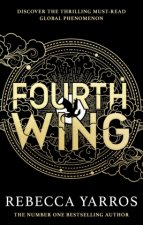
Fourth Wing
10.26 € -20 % -
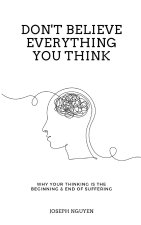
Don't Believe Everything You Think
13 € -20 % -

Twisted Lies
9.75 € -18 % -

Berserk Deluxe Volume 6
51.12 € -

Court of Thorns and Roses Paperback Box Set (5 books)
50.10 € -20 % -

The Courage To Be Disliked
11.07 € -7 % -

Once Upon A Broken Heart
10.97 € -15 % -

Court of Thorns and Roses
9.24 € -22 % -

Golden Terrace: Volume 2
14.12 € -33 % -

Romancing Mister Bridgerton
9.54 € -23 % -

Court of Mist and Fury
9.44 € -18 % -

Heaven Official's Blessing: Tian Guan Ci Fu (Novel) Vol. 5
17.47 € -12 % -

Twisted Hate
10.15 € -21 % -

Before the Coffee Gets Cold
10.46 € -29 % -
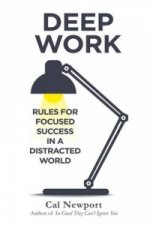
Deep Work
15.24 € -29 % -

The Creative Act
23.98 € -19 % -

Icebreaker
9.14 € -23 % -

Heaven Official's Blessing: Tian Guan Ci Fu Vol. 4
18.69 € -12 % -

Harry Potter and the Chamber of Secrets: MinaLima Edition
30.08 € -16 % -
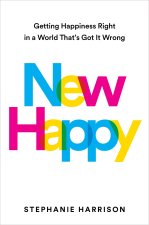
New Happy
23.27 € -18 %
Collection points Bratislava a 2642 dalších
Copyright ©2008-24 najlacnejsie-knihy.sk All rights reservedPrivacyCookies


 15549 collection points
15549 collection points Delivery 2.99 €
Delivery 2.99 € 02/210 210 99 (8-15.30h)
02/210 210 99 (8-15.30h)